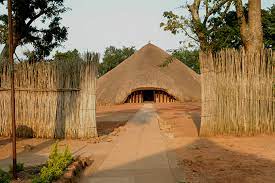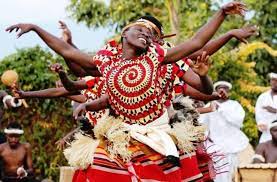INTRODUCTION
This post discusses the meaning of Culture, heritage, cultural heritage, language, art, cultural belief, traditions and the cultural heritage sites of Uganda.
MEANING OF CULTURE
Culture concerns itself with socially transmitted behavior patterns, arts, beliefs, institutions and all other products of human work and thought. Culture includes intangible and tangible heritage, which is varied, complex, and in constant evolution.
HERITAGE
The tangible heritage includes monuments or architecture, art and crafts, sites, manuscripts, books and other objects of artistic and historical interest. The intangible heritage includes language, oral traditions, performing arts, music, festive events, rituals, social practices, traditional craftsmanship, knowledge and practices concerning nature.
CULTURAL HERITAGE
The cultural heritage of Uganda includes artistic and cultural expressions. These are; language and literary arts, performing arts, visual arts and handicrafts, indigenous knowledge, cultural beliefs, traditions and values, cultural sites monuments and antiquities, artistic and cultural expressions are; language and literary arts, performing arts, visual arts and handicrafts, indigenous knowledge, cultural beliefs, traditions and values, cultural sites monuments and antiquities
LANGUAGE AND LITERARY ARTS
Language is the means of expressing the creative arts of oratory and literature. Uganda has a rich variety of indigenous languages and dialects. English is the official language of Uganda and Kiswahili is the second official language.
PERFORMING ARTS
The performing arts include; dance, drama, music, theatre, motion pictures, opera, traditional sports and the marching arts such as brass bands. The performing arts in Uganda are used for self-expression, education and sensitization of communities as well as for entertainment.
VISUAL ARTS AND HANDICRAFTS
The visual arts and handicrafts include among others; basketry, mats, ceramics, beads, pottery, hand-woven textiles and products, toys, jewelry, bags and ornaments, leather products, batik, wood carvings and paintings. The raw materials used in the production of visual arts and crafts are readily available in the country.
CULTURAL BELIEFS, TRADITIONS AND VALUES
Ugandans have different beliefs and traditions that are deeply rooted in their cultural and religious values. The beliefs, traditions and values have contributed to the propagation of social harmony and development. These beliefs, traditions and values sometimes conflict with modern laws. Some of these include; widow inheritance and female genital cutting. This has led some people to regard culture as retrogressive. In addition, Ugandan cultures are continuously adopting and adapting because of local and foreign influences. In some cases, this has led to the degradation of the moral fabric of the society with the most affected category being the youth.

CULTURAL SITES, MONUMENTS AND ANTIQUITIES
Uganda has several cultural sites and monuments. Some of them are man-made while others are natural. These sites, monuments and antiquities are important for sociocultural and educational purposes. They promote tourism and consequently create employment for people. The natural sites also enhance the protection of the environment. Despite their importance, the sites and monuments are not adequately maintained, documented and people’s awareness of their value is low. In addition, some of the antiquities are not collected and those that are kept in the Uganda Museum are not accessible to all people.
CULTURAL HERITAGE SITES IN UGANDA
- Kasubi Tombs
- Namugongo Shrine. …
- Baker’s Fort. …
- Bigo bya Mugenyi. …
- Karambi Tombs. …
- Mparo Tombs. …
- Sezibwa Falls. …
- Nakayima Tree.
- Katereke prison ditch
- Nkokonjeru Tombs
- Nyero Rock Paintings
- Naggalabi -Buddo Coronation Site
- Wamala Tombs
- Nnamasole Baagalayaze and Kanyange Tombs
- Ndere Troupe cultural center
- Igongo Cultural Center
- Itaaba Kyabanyoro
- Katereke Prison Ditch


